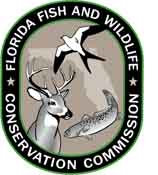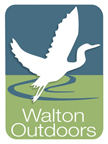 The Florida Fish and Wildlife Conservation Commission (FWC) voted Wednesday to temporarily prohibit the chasing of foxes and coyotes in enclosures, while moving forward to draft rules guiding such enclosures in Florida. An executive order prohibiting chasing of foxes and coyotes within an enclosure will be issued by Feb. 24.
The Florida Fish and Wildlife Conservation Commission (FWC) voted Wednesday to temporarily prohibit the chasing of foxes and coyotes in enclosures, while moving forward to draft rules guiding such enclosures in Florida. An executive order prohibiting chasing of foxes and coyotes within an enclosure will be issued by Feb. 24.
Before making the decision, Commissioners listened to more than 40 speakers on fox and coyote pens, beginning with Rep. Debbie Boyd, D-High Springs. Boyd urged the Commission to recognize the shortcomings on both sides of the issue, to address those shortcomings and engage stakeholders in the process.
“This issue has been painted with a broad brush,” Boyd said. “I ask the Commission to engage stakeholders and put fox and coyote enclosures into rule rather than through the permit process.”
After listening to emotional appeals from the public, whose comments ranged from calling the practice of hunting foxes and coyotes within enclosures a “heritage” and “a way of life” to making charges of “cruelty” and “mauling” of the animals, Commissioners discussed how to proceed based on staff recommendations and public comment.
“Rep. Boyd said it best,” said Commissioner Kathy Barco. “We need to allow for the process so everybody works together.”
FWC Chairman Rodney Barreto said he leaned toward an outright ban of the practice but also felt the process should be given a chance for review.
“I’m not sure I’ll support the draft rules when they come back,” Barreto said. “I don’t see any sport in the animals’ having no escape. I personally don’t agree with the practice.”
Last September, FWC commissioners directed the agency’s law enforcement staff to explore the history behind the enclosures, including a review of the agency’s permitting process and the number of such enclosures in the state. Then-Executive Director Ken Haddad issued an executive order, putting a moratorium on issuing permits for chasing foxes or coyotes in enclosures.
During Wednesday’s meeting at Apalachicola, commissioners received the report, indicating such enclosures have been around since 1988, when the agency began meeting with stakeholders to draw up regulations for permitting them. Previously, fox hunting took place on large land tracts, but fewer tracts were available as Florida’s human population grew.
Enclosure operators also began using more-readily available coyotes captured within Florida. Importing coyotes from other states is illegal.
It is not legal to kill foxes in Florida, but chasing them with dogs has been a long-standing tradition.
At one time, there were about 50 fox and coyote pens from the Panhandle to Central Florida. Currently, however, because of the moratorium and decreasing demand, the state has only one permitted facility.
In 2007, the Alabama Department of Conservation and Natural Resources completed an investigation into fox pens in that state, and shared information with the FWC, indicating illegal importation, sale and delivery of foxes or coyotes was taking place among Alabama and six other states.
FWC investigators made similar discoveries during a 10-month undercover operation in 2008. They found some enclosures were ignoring permit provisions. As a result, officers cited 12 suspects for 46 alleged violations.
FWC wildlife veterinarian Mark Cunningham stated in a report that importation of foxes from other states could result in the spread of disease strains and parasites that are not native to Florida, and that poses health risks for humans, native wildlife, pets and livestock.
“This is not a referendum on hunting; we are a pro-hunting commission,” said Commissioner Brian Yablonski. “But we must consider the concept of ‘fair chase,’ and I am not sure chasing coyotes and foxes in an enclosure meets that standard of hunting – a standard that is important to preserving hunting in the future.”
The Commission asked staff to hold workshops and meet with stakeholders to develop draft rules. The draft rules will be brought back for consideration at the June meeting, with the possibility of final rule approval in September.
Contact: Stan Kirkland, 850-624-7000
